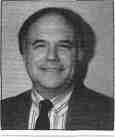Politics
State charter shows some tarnish on its silver anniversary
The drafters of the 1970 Constitution didn't get everything right. One mistake was the governor's amendatory veto By CHARLES N. WHEELER III Twenty-five years ago this month, state government headed into the 20th century as Illinois voters ratified a new constitution to replace its century-old predecessor. As the silver anniversary of the December 15, 1970, vote nears, it seems appropriate to reflect on what the 1970 Constitution has meant to Illinois government — and on the hopes of its drafters that have yet to be realized. To set the stage, consider some of the strictures imposed upon government by the 1870 Constitution, a product of the horse-and-buggy era. Under that document, Chicago and other Illinois cities had to seek legislative approval for virtually everything they wished to do. Borrowing limits designed to block frontier-day boondoggles forced the state to invent quasi-public building authorities to meet capital construction needs — at higher interest costs — while on the local level, debt lids spawned a menagerie of special-purpose taxing districts for everything from airports to water service. In Cook County, homeowners feared the Illinois Supreme Court finally would tell assessing officials to follow the Constitution's clear language and stop assessing homes at lower percentages of fair market value than shops and factories. Nor would the rigid Revenue Article permit lawmakers to exempt food and medicine from the sales tax. And, although then-Gov. Richard B. Ogilvie had instituted an executive budget a year earlier and annual legislative sessions were a de facto reality, neither practice had constitutional underpinning. Moreover, the existing document was replete with outdated items — like limits on Statehouse construction costs and authority for Chicago to sell bonds to finance the World's Columbian Exposition of 1893 — as well as detailed provisions on specific topics that were more properly the province of the statute books than of a constitution — for example, entire articles on corporations and warehouses. In contrast, under the new charter cities with populations greater than 25,000 and counties with an elected chief executive officer enjoy broad home rule powers, allowing them great leeway in handling their internal affairs. Counties larger than 200,000 population may assess property at different levels, a provision that legitimized Cook County's long-standing practice. Greater flexibility in borrowing has allowed direct state financing of highways, school buildings, prisons and other public works, while a looser Revenue Article let the legislature take the state sales tax off food and medicine, saving consumers almost $800 million last year. Executive budgets and annual sessions have been codified, and 19th century relics like the Columbian Exposition and the warehouse article have been deleted. The 1970 document includes some innovations as well, such as the two- tiered system for disciplining errant judges, developed in the wake of a conflict-of-interest scandal that led to the resignations of two Supreme Court justices, and a State Board of Education to supplant an elected superintendent of public instruction as Illinois' chief educational policy-maker. The drafters of the 1970 Constitution didn't get everything right, of course; one new idea that has proven to be a mistake over the last 25 years has been the amendatory veto. Originally envisioned as a way for the governor to correct minor flaws in legislation, the amendatory veto power instead has made governors super legislators, able even to reverse legislative intent with the stroke of a pen. Similarly, the new document's drafters figured a winner-take-all proviso for ending a redistricting stalemate would force party leaders to compromise, rather than run the risk of losing everything. Instead, the provision has given leaders a perverse incentive to stall, in hopes of winning the remap lottery. 6/December 1995/Illinois Issues Likewise, the premise of balanced budgets too often has been undermined by smoke-and-mirrors fiscal gimmickry. Perhaps the most bitter disappointment, though, has been the charter's promise that the state would assume "primary responsibility" for financing public education. The phrase itself was a compromise between drafters who wanted the state to pay the full cost and others who felt that, while the state should pick up most of the tab, some local funding of education was desirable. Unfortunately, after peaking at more than 48 percent in the 1975-76 school year, the state's share of public school costs has fallen to its current level of about 32 percent. The hollow promise prompted local school districts to challenge in court the state's failure to fund elementary and secondary education adequately, a case now pending before the Illinois Supreme Court. In a 1973 decision, though, the high court held that the constitutional language expressed a goal, not an enforceable mandate. An effort to amend the charter to strengthen the commitment was narrowly defeated in 1992, in part out of concern for its potential $2 billion-plus price tag. While the school funding amendment failed, nine others have been adopted over the last 25 years. The first two came in 1980, including the most lamentable of the lot — the so-called Cutback Amendment. That revision sliced the size of the House by a third and eliminated cumulative voting, a holdover from the 1870 Constitution. Under the old system, three members were elected from each House district, with voters able to cast a single vote for each of three candidates, to give 1.5 votes to two candidates, or three votes to a single candidate. Usually, the arrangement produced a bipartisan House delegation from each district, a strong antidote for the regional, partisan polarization that now poisons the legislative atmosphere. Ironically, voters rejected the chance to replace cumulative voting with single-member House districts in 1970. Like the decision to ratify the new charter, it was a sound choice. Charles N. Wheeler III is director of the Public Affairs Reporting program at the University of Illinois at Springfield. December 1995/Illinois Issues/7
|
|||||||||||||||
